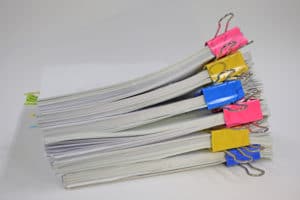This rule requires prosecutors to turn over evidence to the defendant in criminal cases
It seems fairly obvious: the only way that a person can defend themselves against criminal charges is to know exactly what evidence the police and prosecution has against them. Yet in many cases, prosecutors are reluctant to turn over this evidence, which may lead to criminal convictions being overturned because a defendant did not have access to all necessary information. This situation led to the United States Supreme Court establishing what has become known as the Brady Rule.
In 1963, the Supreme Court held that the prosecution in a criminal case must turn over to the defense all evidence supporting the charge or charges against a defendant. This includes what is known as exculpatory evidence, which is any evidence that is favorable to the defense, and which may tend to prove innocence or cast doubt on his or her guilt. Exculpatory evidence is typically referred to as Brady evidence by prosecutors and defense lawyers.
In most cases, prosecutors are highly ethical and turn over all relevant material, including Brady evidence. However, there are situations where prosecutors do not turn over exculpatory evidence. This could be done in bad faith, out of a desire to “win.” It may also be done because they simply don’t believe that the evidence is exculpatory — in their view, it is not favorable to the defense. Whatever the motivation may be, a failure to turn over evidence in a criminal case can impact a defendant’s right to a fair trial.
Recently, the California Supreme Court issued an order that established a new ethics rule for California prosecutors. Titled “Special Responsibilities of a Prosecutor,” this new ethics rule requires prosecutors to disclose all exculpatory evidence under Brady AND all evidence that the prosecution knows, or reasonably should have known, would cast doubt on a prosecution witness’ testimony. Under this rule, prosecutors are also responsible for turning over evidence that has been discovered by law enforcement officers or non-lawyer employees of the prosecutor’s office. The purpose of the rule is to close loopholes traditionally used by some prosecutors to avoid disclosing evidence to defendants.
Under this new rule, if a prosecutor had information that one of its witness had a motive for long about the defendant, he or she would have to turn that evidence over to the defense. Prior to this new ethical rule, the prosecution may have been able to withhold that information from the defense, which would make it more difficult for a Riverside criminal defense lawyer to cross examine that witness.
Ultimately, the Brady rule is designed to help create a level playing field for criminal defendants by giving them access to information about the charges against them. A skilled Riverside criminal defense lawyer can help ensure that a defendant obtains full discovery of the evidence in a criminal case, and that the prosecutor complies with the Brady rule.
If you have been charged with a crime, you will need an experienced Riverside criminal defense lawyer to represent you. Contact the Chambers Law Firm today at 714-760-4088 or dchambers@clfca.com to schedule a free initial consultation and learn more about how we can help you.





